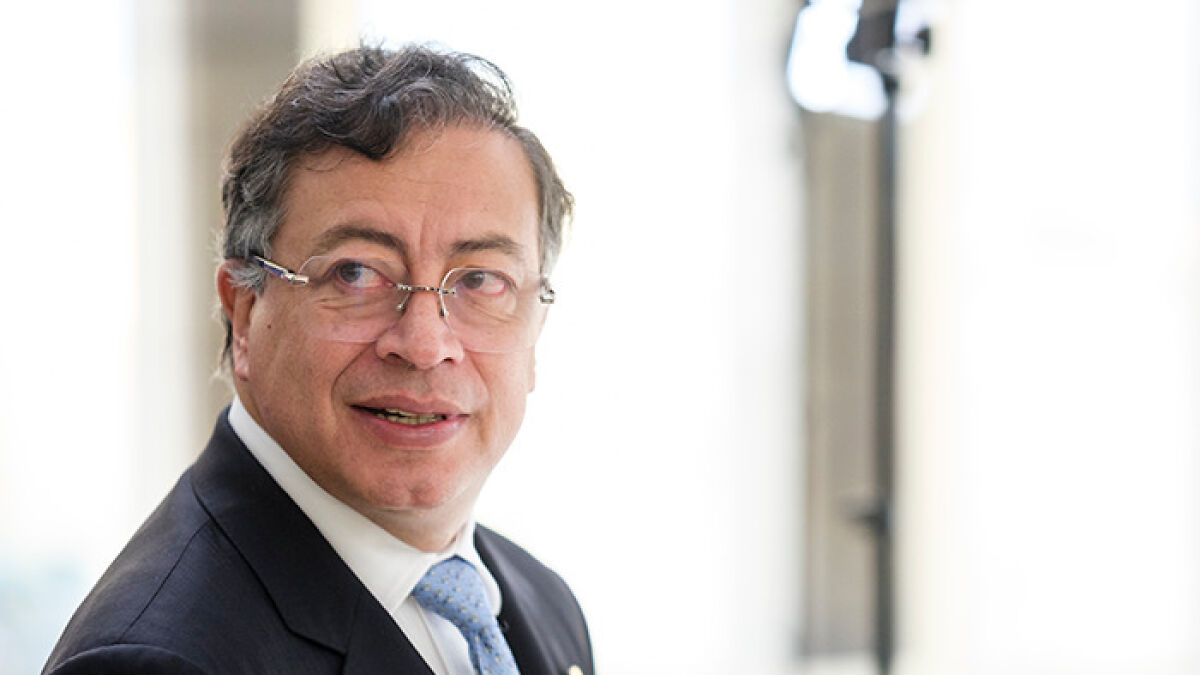
ANALYSIS: As Trump Threatens Venezuela, Colombia’s President Sees His Big Moment
When President Donald Trump declared on October 15 that he was considering strikes inside Venezuela, as well as authorizing the CIA to conduct covert operations inside the South American country, his statements capped months of escalating U.S. military activity in the Caribbean and reopened questions about Washington’s long-term objectives.
- Trump considers military strikes and CIA covert operations in Venezuela amid rising U.S. naval deployments in the Caribbean.
- U.S. missile strikes targeting narcotics shipments caused 32 deaths but have strengthened Maduro's domestic support.
- Colombian President Gustavo Petro breaks century-old alignment with U.S., reopening ties with Venezuela and opposing strikes.
- Petro's anti-drug strategy focuses on financial networks, yielding record cocaine seizures while facing domestic backlash.
- Experts see U.S. military action as deterrence and psychological warfare, not full invasion, amid regional tensions.
At least 10 U.S. Navy ships have been added to those already deployed in the region since August, while multiple sea vessels the White House claims were carrying narcotics from Venezuelan ports have been targeted with missile strikes since early September.
Of seven strikes confirmed by U.S. officials up to October 19, only an attack on a semi-submersible “narco-sub” on October 17 left any survivors—with two people reportedly captured after two others were killed. In total, an estimated 32 people have died in the strikes.
Support for President Nicolás Maduro in Venezuela is on the increase amid U.S. threats, an analyst says
Image credits: Thierry Monasse/Getty Images
Yet, despite Trump’s public belligerence, his administration also continues cooperating with the Venezuelan regime, led by President Nicolás Maduro.
“You have one policy advancing behind the scenes and another policy that’s very much playing towards the cameras,” said Geoff Ramsey, a senior fellow at the Atlantic Council who is a specialist on Venezuela and Colombia.
“It’s not just a matter of mixed signals. The administration is trying to balance a hardline image with practical engagement behind the scenes. That’s what makes the situation so unpredictable.”
Ramsey’s assessment reflects a broader contradiction. While the Trump administration has mounted the largest U.S. naval deployment to the Caribbean in decades, it has also renewed oil licenses for Chevron in Venezuela and expanded cooperation on migration flights.
Washington has continued deportations from Texas and Florida to Caracas twice a week—a coordinated effort impossible without direct communication between the two governments.
Image credits: The White House
This dual track has sown confusion among allies and adversaries alike. Officially, the White House frames the operations as counter-narcotics measures and Trump insists the United States is not pursuing regime change, but his public rhetoric—backed by missile footage released by the Pentagon—suggests otherwise.
For Colombia’s President Gustavo Petro, whose administration has tried to present itself as an independent actor between Washington and Caracas, the shifting landscape offers both opportunity and peril. Petro has condemned the strikes as violations of international law and warned that any incursion into Venezuela would endanger Colombia’s own security.
His stance, analysts say, could mark the most significant break in Bogotá’s U.S. alignment in more than a century.
Image credits: The White House
Colombia breaks from Washington’s line
According to political analyst Dr. Federico García Naranjo, Colombia’s response represents “a historic shift.” For over 100 years, he said, “Colombia’s foreign policy has been obedient to Washington’s recommendations. Petro has introduced a more pragmatic and less ideological vision that emphasizes national interests above political alignments.”
That independence has already shaped his relationship with Caracas. Petro reopened diplomatic and commercial ties with Venezuela shortly after taking office, ending years of hostility under his predecessors. García argued that cooperation is essential for the “nearly 2 million people who live along the border and depend on both economies.”
At the same time, Petro has criticized U.S. counter-narcotics tactics, contrasting them with his own domestic approach. His administration has sought to de-emphasize eradication of drug crops and instead focus on interdiction and financial-crime investigations, a strategy that García said has yielded record cocaine seizures.
Colombia’s President, Gustavo Petro, has seized the moment to voice his anti-U.S. rhetoric
Image credits: Thierry Monasse/Getty Images
“The focus is no longer persecuting poor farmers,” he said. “It is about targeting the financial capital of the drug trade.”
According to government figures, in 2024, Colombia seized 848.5 tons of cocaine—a 14% increase on the previous year—while in the first half of 2025, it seized 601 tons, the highest mid-year amount in two decades.
However, the shift has provoked backlash from conservative sectors at home, where some lawmakers accuse Petro of being soft on crime.
Meanwhile, on October 19, Trump took to social media to brand the Colombian president “an illegal drug dealer strongly encouraging the massive production of drugs in big and small fields all over Colombia”—a statement that drew a strong rebuke from the Colombian Ministry of Foreign Affairs (Cancillería), which called his words a “direct threat against national sovereignty.”
He also announced new tariffs and said all American payments or subsidies to Colombia would end immediately.
Image credits: Pedro Rances Mattey/Anadolu/Getty Images
Later, aboard Air Force One, Trump called the Colombian leader “someone with a lot of mental problems” and “a lunatic.”
For García, the recent anti-drug strategy “aligns better with public-health principles and rural development than decades of failed militarization.”
NEW: President Trump described Colombia as a “drug manufacturing machine” and called President Gustavo Petro “someone with a lot of mental problems” and “a lunatic”:
They’re making a lot of money from drugs. I used to complain about it when they had a very nice president, but he… pic.twitter.com/XOYuc80ITR
— TabZ (@TabZLIVE) October 20, 2025
The politics behind the missiles
Even as the U.S. military presence expands and Trump cranks up his rhetoric, experts doubt that Washington intends to invade.
“I see the possibility of a U.S. military intervention in Venezuela as very distant,” said Dr. Sandra Borda, associate professor of political science at Andes University in Bogotá.
“This is more about deterrence—threatening the use of force to strengthen the U.S. negotiating position and pressure Maduro toward concessions,” she said.
Borda described the strikes on small vessels as “an exercise in psychological warfare and public relations,” aimed as much at U.S. domestic audiences as at Venezuela.
Image credits: Colombian Navy Press Office/Handout/Anadolu/Getty Images
Like Ramsey, she highlighted the administration’s dual strategy of projecting military strength while maintaining quiet talks over energy and migration.
“They’re using the show of force to extract advantages without escalating into a full conflict,” she said.
Still, the saber-rattling has rallied support for Maduro at home. García noted that “U.S. threats have awakened a nationalist and patriotic spirit in Venezuela,” which the Venezuelan leader has capitalized on.
“The unintended consequence,” he said, “is that it has strengthened the regime instead of weakening it.”
Petro’s calculated defiance
Trump’s aggressive stance toward Petro appears to have emboldened the Colombian leader. Ramsey said Petro “is looking for a fight with Trump,” seeing confrontation as politically useful ahead of next year’s presidential elections in Colombia.
While Colombia only allows single presidential terms, Petro’s progressive coalition will put forward a candidate, who will unlikely be able to win a first-round election, but will have a strong chance of reaching a run-off.
“He [Petro] understands that Trump is deeply unpopular in Colombia,” Ramsey said, “and he sees a way to give his coalition a boost heading into a polarizing cycle.”
Petro’s visibility makes him a major complication for Washington
NEW:
🇨🇴🇺🇲 Colombian President Petro.says Trump wants Venezuela’s oil:
“The United States wants Venezuela’s and Guyana’s oil, oil greed is what’s behind the missiles over fishermen.” pic.twitter.com/ZcUAICf6HM
— Megatron (@Megatron_ron) October 19, 2025
Borda warned, however, that Petro’s visibility makes him a major complication for Washington.
“He’s not seeking re-election, and he’s trying to consolidate himself as a global progressive voice opposed to Trump’s agenda. Any U.S. intervention in Venezuela would hand Petro a perfect platform for anti-imperialist rhetoric.”
That, she argued, partly explains Washington’s relative caution. “Trump knows that an open conflict could elevate Petro as an international figure,” Borda said. “The U.S. doesn’t want to give him that opportunity.”
A region on edge
While full-scale invasion scenarios remain unlikely, both Borda and Ramsey agree that limited air or missile strikes cannot be ruled out. Ramsey outlined three potential outcomes, with the first being a “magical transition scenario in which the military decides to rise up”, which he described as “very unlikely.”
“Venezuelan counterintelligence has been really good at picking apart coups and keeping the upper ranks of the Venezuelan military fat and happy while the people suffer,” he said.
🚨 BREAKING: The Colombian president says Donald Trump should be locked up and urges his military to rebel against him.
He is the main ally of the narcoterrorist Nicolas Maduro in the region. pic.twitter.com/kh1mHtzZpI
— Emmanuel Rincón (@EmmaRincon) September 30, 2025
The second scenario involves an escalation of missile strikes, attacking targets inside Venezuela—something that Borda also agrees is highly possible.
Ramsey says such strikes would most likely target guerrilla groups encamped on the Venezuelan side of its border with Colombia, as well as clandestine airstrips used for drug flights. However, he didn’t rule out the possibility of high-ranking members of the Maduro regime being targeted.
“But I think it’s a very, very risky scenario in which there is a high probability of destabilizing violence, which would have ramifications for U.S. interests, not just in Venezuela but across the region,” he said.
The third is that Trump pivots back to the more transactional approach he adopted in the early weeks of the current administration, which Ramsey described as “probably the most likely scenario, but probably the least attractive to Venezuelans that are hungry for change.”
Image credits: Jesus Vargas/Getty Images
García believes Trump will “use the naval deployment when it suits him,” noting that it serves domestic political needs as much as foreign ones.
“This can rise or fall in intensity depending on the moment. It’s a permanent threat designed for the media cycle,” he said.
Borda warned that should Washington escalate, Maduro might seek to “involve Colombia by generating disorder along the border, even using armed groups like the ELN [National Liberation Army].” Such a scenario, she said, would “leave Bogotá no way to look the other way.”
For now, Petro’s independent posture has won him attention abroad and given the U.S. some pause for thought—even despite Trump’s bellicosity. Yet, his balancing act carries profound risks.
“Petro’s stance may buy him credibility in Latin America, but it could also isolate him if the crisis deepens,” said Borda.
Poll Question
Thanks! Check out the results:
1k+views
Share on FacebookTrump is completely untrustworthy. Every word out of his mouth is a lie. RELEASE THE EPSTEIN FILES!!!!
Trump is completely untrustworthy. Every word out of his mouth is a lie. RELEASE THE EPSTEIN FILES!!!!


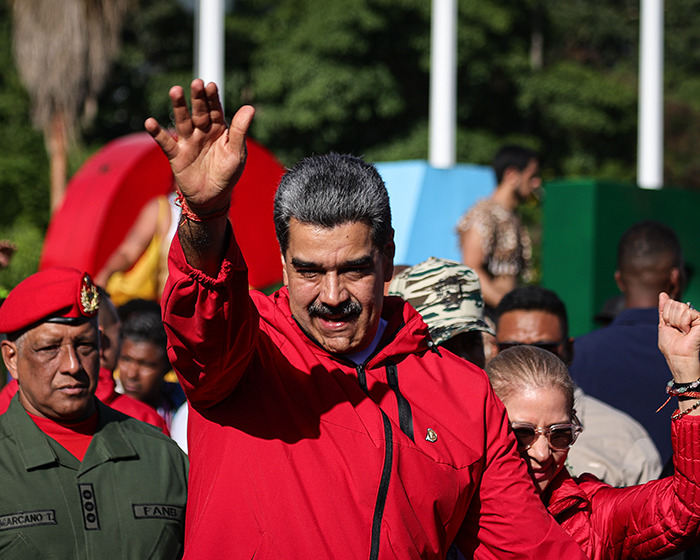
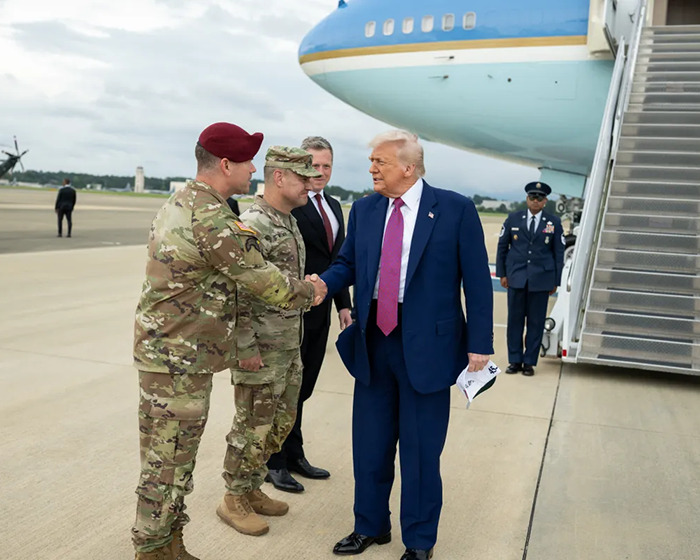
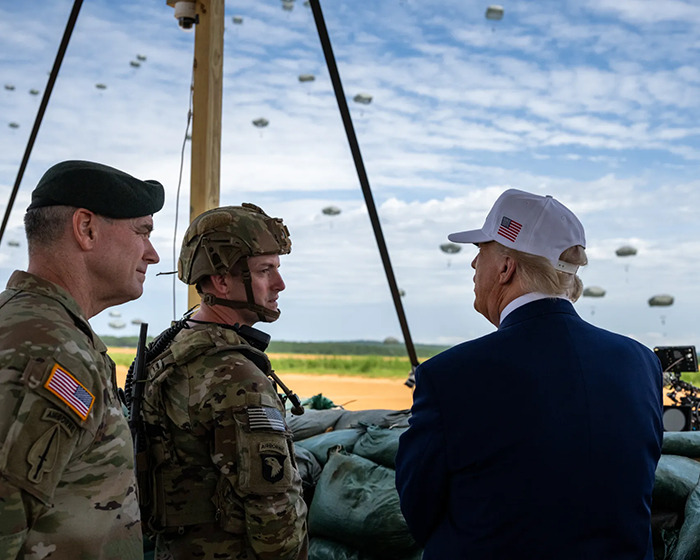
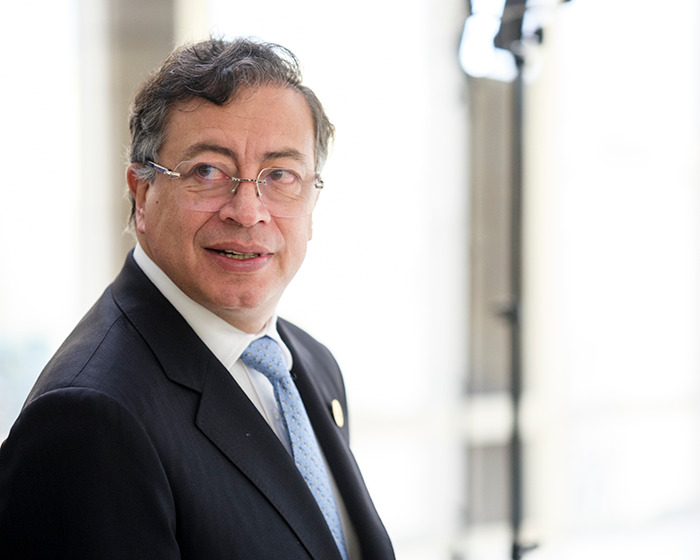
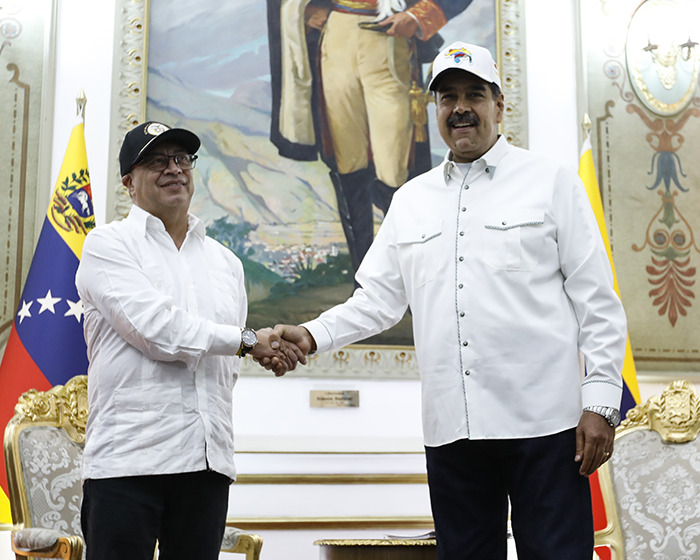
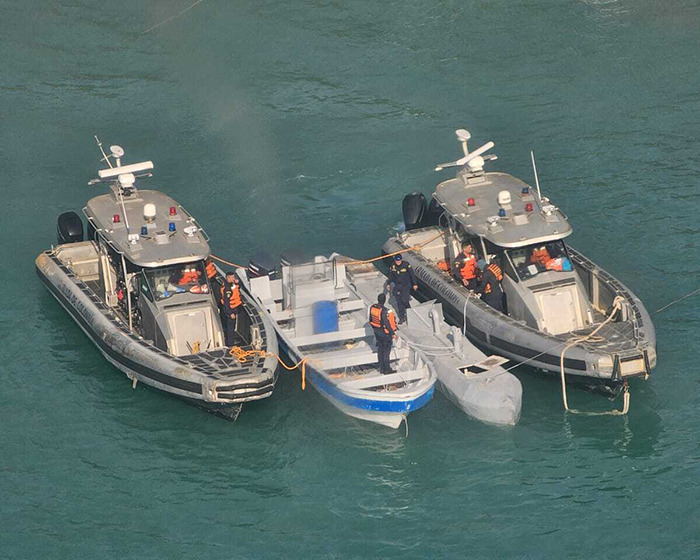
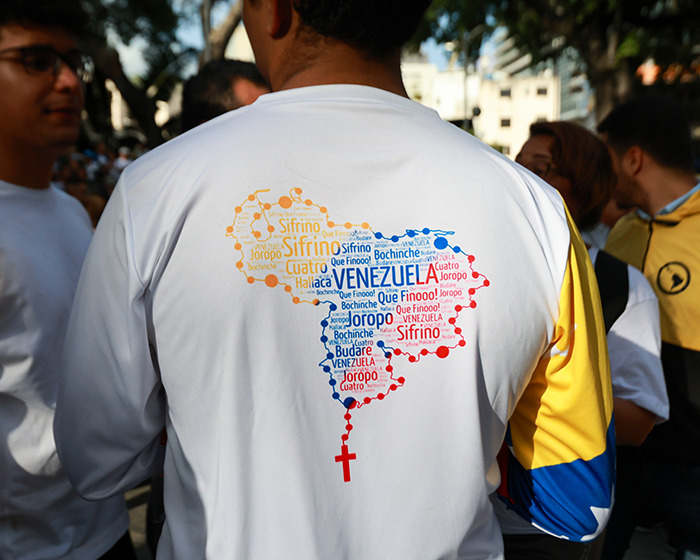



18
2